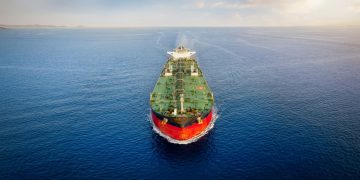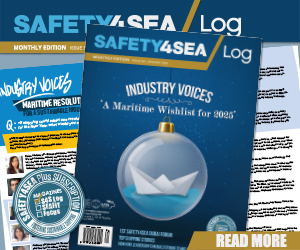The maritime industry’s focus on seafarer mental health and well-being is critical for safety, retention, and productivity. In an exclusive interview, we explore the perspectives and findings shared by Henrik Jensen, Managing Director of Danica Crewing, and Alexandra Kaloulis, Managing Director of IMEQ Center, in response to several pressing questions about seafarer welfare.
IMEQ Center and Danica Crewing have partnered to enhance crew welfare through innovative psychometric tools and structured well-being initiatives, improving soft skills and fostering a harmonious onboard environment. Their collaboration provides seafarers with support for professional and personal challenges, while offering shipowners insights into crew dynamics. By addressing issues like teamwork, adaptability, and leadership, the partnership creates a cohesive and inclusive workplace, setting a new standard for seafarer welfare and promoting a healthier, more resilient maritime workforce.
SAFETY4SEA: What are the most common challenges you observe among seafarers when they transition back to shore life, and how do these affect their relationships and routines?
Henrik Jensen: A seafarer family is in many ways organised differently than others. With the seafarer being away for the half of the time or more, the seafarers spouse is the manager of the family. A seafarer coming back will have to fall into the routines set by the spouse. Fortunately, the connectivity between the families and the seafarers has improved a lot in the recent years thanks to internet connections becoming available in a wider scale and affordable. This enables the seafarer to become a more involved, or at least updated, in the daily family life back home.
S4S: How do seafarers emotionally prepare for the shift from a structured life onboard to the often less structured life at home? What coping strategies do they find most helpful? Have you witnessed any behavioral changes right before they go home?
Henrik Jensen: Whilst seafarers of course are doing their tasks onboard in a professional way, it is very important that they return to their families as contractual agreed. An unwanted extension of their agreed tenure is often a great disappointment which caused demotivation and sad faces and sometimes affecting the performance of the seafarer. Despite the importance for the seafarers to be timely repatriated the Danica Seafarer Survey 2024 revealed that 20% of the seafarers in the past year has experienced to be forced to stay longer onboard than agreed.
S4S: Are there specific psychological theories or models (such as role strain, cognitive dissonance, or attachment theory) that help explain the stress seafarers experience in these transitions?
Alexandra Kaloulis: Yes, several psychological theories provide valuable insights into the stress seafarers experience during transitions. Role strain theory is particularly relevant, as it highlights the conflicting demands placed on seafarers when transitioning between roles onboard and at home. Balancing the disciplined, hierarchical environment of the ship with the more emotionally flexible and relational dynamics of shore life often creates tension. Cognitive dissonance theory also comes into play when seafarers’ onboard identity, often defined by resilience and independence, clashes with societal expectations or family roles onshore, leading to internal conflict. Finally, attachment theory is significant in understanding how prolonged separations from loved ones might strain relationships, creating anxiety and difficulties in re-establishing close bonds during shore leave.
S4S: What does the literature say about the phenomenon of “identity drift” among seafarers, and how does it affect their mental well-being?
Alexandra Kaloulis: The phenomenon of identity drift is well-documented in maritime studies. It refers to the gradual loss or fragmentation of a seafarer’s sense of self as they navigate between vastly different environments—each with unique demands and expectations. At sea, they adopt a professional, task-oriented identity, while onshore, they must reconnect with family, community, and a more personal sense of self. This back-and-forth adjustment often leaves seafarers feeling disconnected or unsure of where they truly belong. Over time, this can lead to issues such as depression, social withdrawal, or even difficulty maintaining personal relationships. Literature highlights that identity drift can exacerbate feelings of isolation, particularly if seafarers perceive that they are not fully understood or valued in either environment. Interestingly, as Henrik observes, long-time seafarers often carry a laptop loaded with games, which provide a sense of consistency amidst their transient lifestyle. These games serve as a coping mechanism, allowing them to retreat into a familiar virtual world and, at times, avoid confronting the realities of their surroundings.
S4S: Are there specific changes in personality or psychological adaptations commonly observed in seafarers who have worked at sea for many years? Can you share any memorable stories or examples of seafarers who managed the transition well or who faced particular challenges?
Henrik Jensen: I have observed that the seafarers over the years developed a condition of being rootless. I think this is caused by the seafarers ever changing place of where is staying. He is onboard for a limited period and knows that although he will develop friendships with some of his colleagues onboard, it is only temporary as he and they will split and most properly never meet again. When home they fell themselves as a temporary appendix to the family as the spouse is running the family and setting the routines and daily rules. A symptom of this is that we see seafarers travelling with a backpack stuffed with a strong laptop with computer games which becomes their point of continuousness.
S4S: Based on the available studies, what mental health concerns are most commonly reported by seafarers experiencing these lifestyle shifts, and how do these differ between life at sea and life onshore?
Alexandra Kaloulis: Commonly reported mental health concerns include stress, anxiety, depression, and loneliness. At sea, the primary stressors are isolation, long working hours, and the inherent risks of the job, which can lead to chronic stress or burnout. Seafarers also report homesickness and difficulty staying connected with loved ones, which contributes to feelings of loneliness. Onshore, mental health challenges often revolve around readjustment difficulties. Many seafarers struggle to reconnect with their families or integrate back into community life after being away for months. This can create feelings of alienation or guilt, particularly if their loved ones have adapted to their absence in ways that make re-entry challenging.
S4S: In your opinion, what qualities or practices contribute most to a seafarer’s ability to balance their “double life” successfully?
Henrik Jensen: I think a strong partnership with their spouse is very important and common understanding of each roles in family.
S4S: Are there evidence-based interventions or best practices in the literature that have been shown to help seafarers manage role transitions more smoothly?
Alexandra Kaloulis: Several evidence-based interventions and best practices have proven effective:
- Psychological preparation: Providing seafarers with training or counseling before and after contracts can help them anticipate and cope with the emotional challenges of transitions.
- Peer support networks: Establishing onboard and onshore peer groups allows seafarers to share experiences and solutions.
- Mental health screenings: Regular screenings can identify early signs of stress or other issues, enabling timely intervention.
- Family inclusion programs: Involving families in reintegration processes, such as through workshops or family counseling, fosters smoother transitions.
- Digital tools: Apps like the IMEQ Seafarers App provide seafarers with access to mental health resources, practical coping strategies, and professional support, even while onboard.
S4S: What role does Danica crewing play in supporting seafarers’ mental health and well-being during their transitions?
Henrik Jensen: Firstly, we deploy only seafarers at owners who takes proper care of their seafarers. We fully understand the importance of an environment onboard which is not only diversified but also inclusive, allowing different cultures and behaviours to be accepted. We have with some scepticism been observing the growing number of mental health services who in a very unstructured way is concluding diagnoses of the seafarers and offering courses and counselling. Whilst these may help the individuals they may not take away the root causes for the seafarers not being mentally well or even in distress. We then found IMEQ and I really like their approach where they through crew surveys on each ship measures and list the causes for the crew not being mentally health, like onboard leadership, insufficient rest etc. This risk assessment is a valuable tool for the responsible employer to take preventive actions. We just started using the system and we are looking forward to be working with it.
S4S: What cultural or social factors are noted in the literature as influencing seafarers’ adaptation to shore life after long periods at sea? How can these factors shape the support they might need?
Alexandra Kaloulis: Cultural and social factors play a significant role in shaping a seafarer’s experience of transitioning back to shore life. In some cultures, seafarers are seen as primary breadwinners, which creates immense pressure to financially support extended families, even at the expense of their own well-being. This can lead to stress and guilt if they feel they are not meeting these expectations. Social isolation is another factor, as seafarers often find that their absence has altered their relationships. Communities may continue without them, leaving them feeling out of place upon return. Additionally, stigmas around mental health in certain cultures may prevent seafarers from seeking the support they need. To address these factors, support programs must be culturally sensitive and holistic. For instance, providing financial counseling, family therapy, and culturally appropriate mental health resources can help seafarers feel more grounded and supported during their transitions.
The views presented are only those of the authors and do not necessarily reflect those of SAFETY4SEA and are for information sharing and discussion purposes only.































































